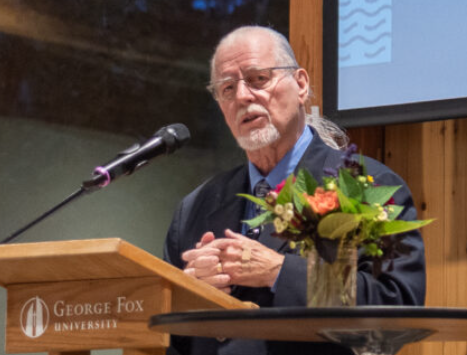
The idea that one speaks the name ‘Yahweh’ with each breath continues to spread. This is a false idea that demeans the character of God and spreads unbiblical notions about the breath and one’s connection to God. Examining this idea and exposing its falsehood is necessary in a world increasingly unmoored from the idea of objective truth.

This article gives an overview of the background and teachings of the Contemplative movement, also known as Contemplative Spirituality, the Spiritual Disciplines, Spiritual Formation, and mysticism.

Most of the book, Praying Like Monks, Living Like Fools, by Tyler Staton, is not about Contemplative practices. Staton uses what is often called the Lord’s Prayer as a template […]

What this adds up to is mysticism, and a mystical view is a natural result of contemplative practices that apparently have captivated Mackie. Mysticism is not a matter of transcending logic or thought; it is actually contra logic and thought. This is why all contemplative teachings downgrade the mind . It is always found in esoteric teachings that there is something profound beyond words and reason that one can experience – a hidden or secret experience and/or wisdom. This is exactly how I thought for over 20 years.
Mackie is planting not only the idea that gaining perception of “another reality” or a “super reality” is positive, but he is offering the means for it through the contemplative practices, which will alter perceptions over time.

Why so much about the body in the spiritual disciplines (Spiritual Formation)? One reasonable conclusion is that since prayer (and many of the disciplines) are elaborate practices involving the body in Contemplative teachings, a theology around the body is constructed to hold up the Contemplative edifice (since this edifice is not held up by Scripture). The attempt at scanctification via methods from men includes the attempt at sanctifying the body. But the fallen body is not sanctified nor can it be in this life for the Christian. That is why it will be made into a new glorified body, as was the body of Jesus upon his resurrection, in a future time.

…and other popular ideas such as the “shadow self” Current popular teachings, mainly due to the recent influence of the Enneagram which include Jungian ideas of the dark side […]

Peter Greig, the founder of the 24/7 Global Prayer Movement, and author and teacher on prayer, is heavily promoted by JOHN MARK COMER. The term “24/7 Prayer” sounds good until one investigates what Greig teaches about prayer.

Tradition and Wisdom This is from the Shalem Institute for Spiritual Formation website: “Shalem is grounded in Christian contemplative spirituality and, at the same time, draws on the wisdom […]

What can we say to the claims made by Contemplative proponents? Are their arguments sound and biblical?

Comer’s theme in this book is that Christians must pursue the “practices of Jesus,” or the “Way of Jesus,” which are the spiritual disciplines. However, there is no evidence that the spiritual disciplines as taught by Comer and others are taught in Scripture, nor are meditation and prayer modeled in Scripture anything like what is taught by Contemplatives.
